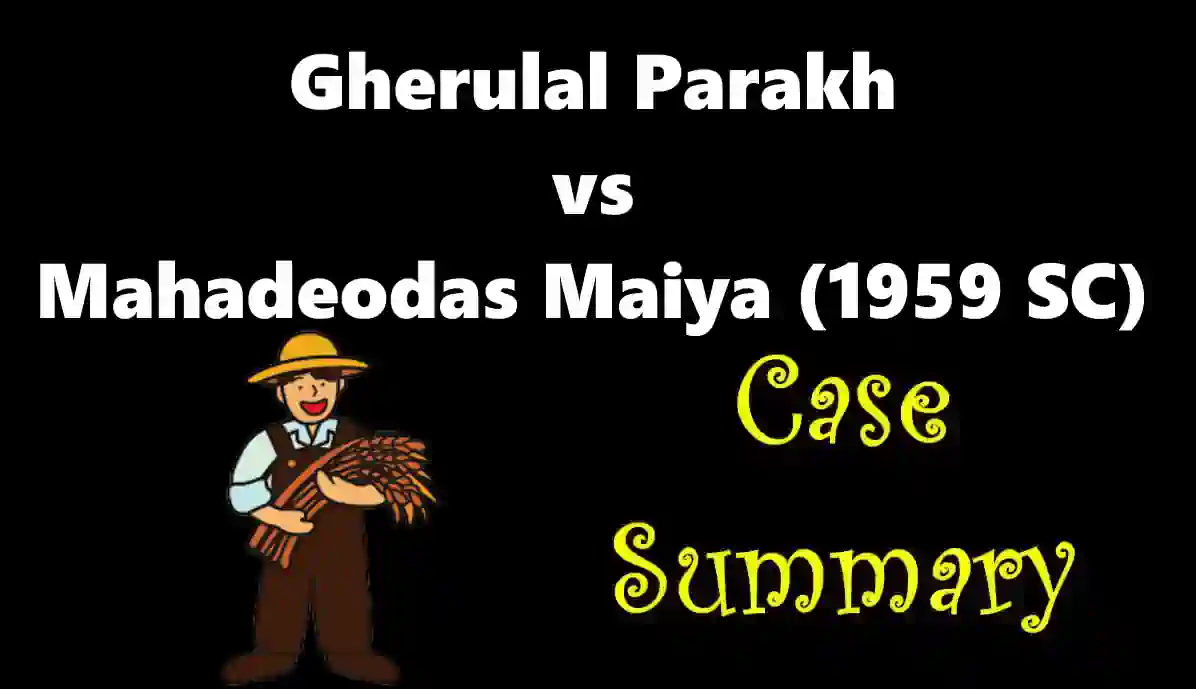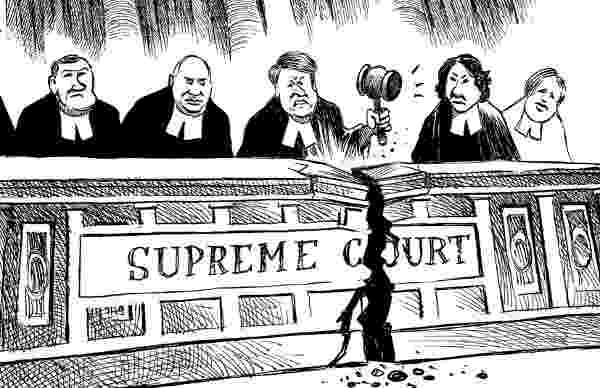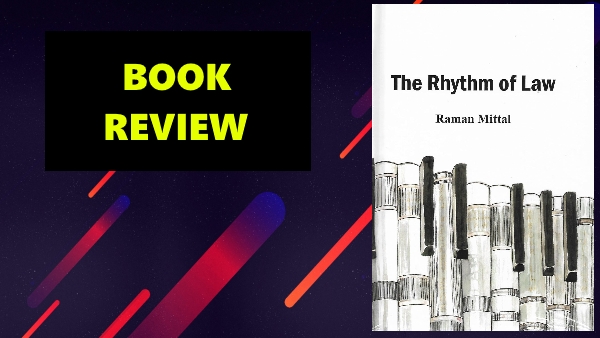Gherulal Parakh vs Mahadeodas Maiya Case defined the word “forbidden by law” which is given under section 23 of the Indian Contract Act. It states that the word “forbidden by law” is not the synonym of the word “void”, therefore it is not necessary that whatever is void is forbidden by law. As per the Section 30 of the Indian Contract Act, 1872 every agreement by way of wager is void. Wager basically refers to something such as sum of money risked on an uncertain event or we can say something on which the bet are laid, In simple terms we can say it’s a gambling.
BENCH
Hon’ble Justice K. Subbarao, Hon’ble Justice Syed Jafar Imam, Hon’ble Justice A.K Sarkar
RELEVANT PROVISIONS
- Section 23 of the Indian Contract Act, 1872
- Section 30 of the Indian Contract Act, 1872
- Section 69 of the Indian Contract Act, 1872
- Indian Partnership Act, 1932
FACTS
- Appellant and respondent entered the partnership agreement for the sale and purchase of wheat with other firms on the condition that the Respondent will enter a contract on behalf partnership and profit and loss will be distributed equally.
- Transaction resulted in loss, which was fully paid by the respondent to the third parties.
- When respondent ask appellant for the sharing of liability, appellant refused.
- Respondent sued appellant to recover the amount which the appellant has refused.
ISSUE
- Whether the partnership agreement of entering wagering agreement was illegal within the section 23 of the Indian Contract Act, 1872?
RATIO DECIDENDI
- The mistake of fact has to be bilateral and in order that an agreement be treated as void, both the parties must suffer from mistake of fact.
- Earnest money (byana) or any kind of other deposit cannot be given up if the underlying contract is void.
- The forfeiture of earnest money (byana) is permissible only when a concluded contract has come into being and not prior thereto.
DECISION
The court held that though the wagers are void under section 30 of the Indian Contract Act, 1872 but cannot be forbidden by law under section 23 of the Indian Contract Act for the person entering a wagering contract. Therefore, the agreement intending to wager the contract cannot be declared void as it is forbidden by law under section 23.
CASES REFERRED:
- The State of Bombay v. R.M.D. Chamarbaugwala
- Bhagwant Genuji Girme v. Gangabisan Ramgopal
- Gopi Tihadi v. Gokhei Panda
- Beni Madho Das v. Kaunsal Kishor Dhusar
CONCLUSION:
The appeal is dismissed with the cost as the mistake of fact has to be bilateral and in order that an agreement is treated as void, both the parties must suffer from the mistake of fact.
BEST BOOK FOR CONTRACT LAW: Contract Law by RK Bangia (Latest Edition)





